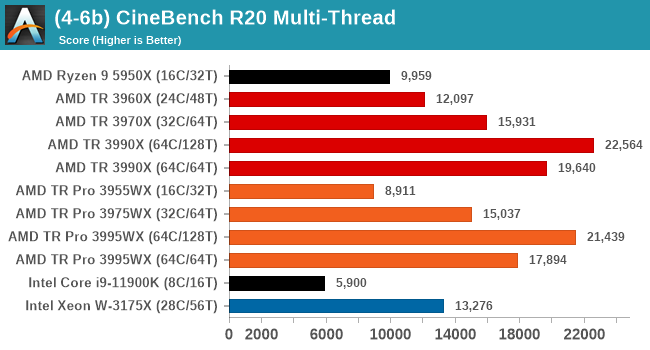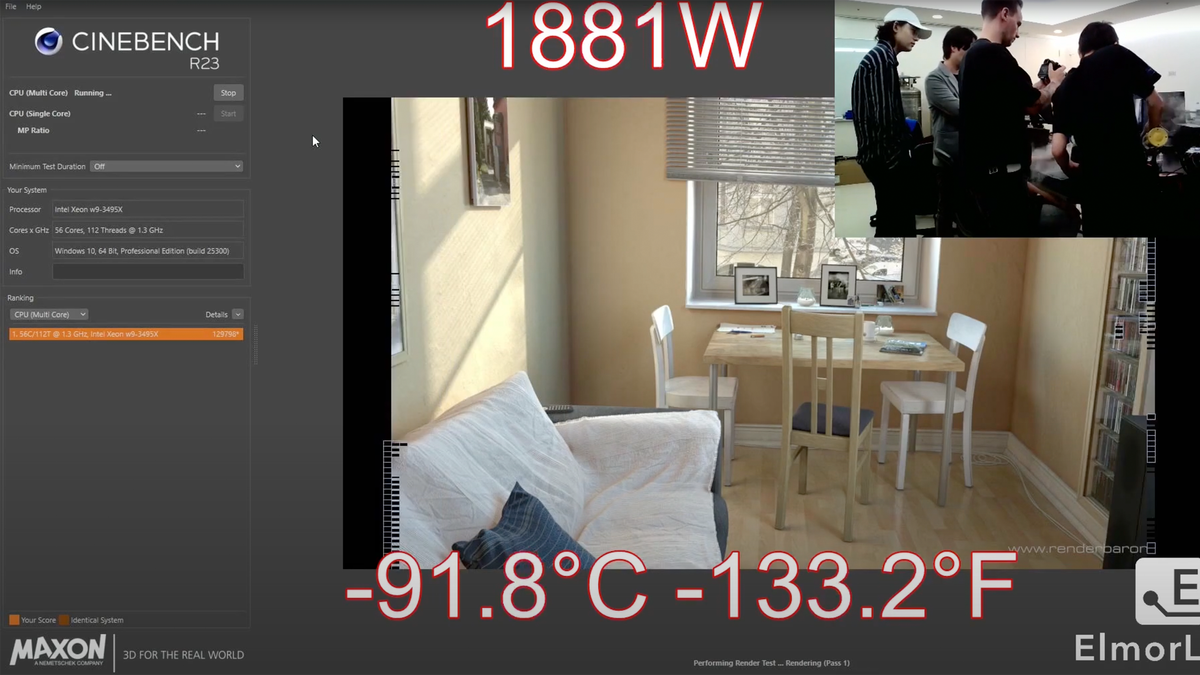The point of my looking up those benchmarks was to see how much CineBench was affected by memory bandwidth. ThreadRipper 3000 vs. ThreadRipper Pro 3000 differed in that Pro had 8-channel memory & slightly lower clock speed, while the non-Pro had 4-channel memory & slightly higher clock speed.
The idea was to gauge how CB might fare on a 64-core Zen4C CPU with only 6-channel memory. I don't really see what
@jaydenmiller1 's CPU has to do with that question, unless it's some ThreadRipper or EPYC.
However, if that CPU model is popular, then I guess you could go ahead and look for R20 benchmarks of it. Not sure how useful either that or comparing your R23/R24 results with TR 3k would be. The main argument I see for searching out data on the newer benchmarks is if it affects multi-core scalability, but you still need to find essentially the same CPU tested with substantially different memory configurations.



